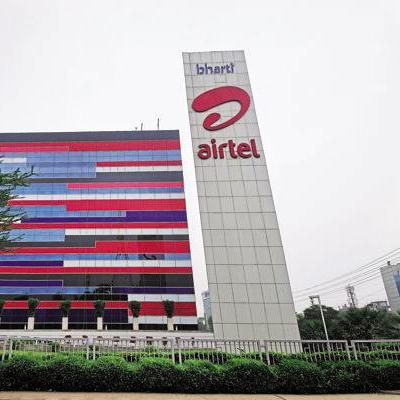  Bharti Airtel's India operations are likely to widen its net loss in the current April-June quarter as revenue remains under pressure and costs continue to rise, its chief executive officer Gopal Vittal has said. He, however, reassured that the worst may be behind the industry with the pricing of voice and data services — at the heart of the company’s financial woes — having bottomed out, and the industry consolidating to become a market with three equally strong private players.
“If your revenue is under pressure and your costs are increasing, then it’s not very difficult to figure out the math,” Vittal told ET, when asked whether Airtel would widen its losses in India.
In the quarter ended March 2018, the Sunil Mittal-driven carrier posted its first ever loss for Indian operations in the past 15 years, Rs.652 crore, while posting its lowest ever profit of Rs.83 crore at a consolidated level owing to cut in international termination rates and Reliance Jio-triggered low tariffs.
“We (industry) have pretty much hit the bottom. Industry has gone through pain because pricing is at an unsustainably low level. Industry return on capital is also low. So, pricing will also have to correct for sustainable and financially vibrant industry,” Vittal said.
Vittal, however, didn't say by when he expects the pricing to rise, and praised Jio for showing “great audacity in the market”, and for building “a great network.” The top boss of Bharti Airtel’s India and South Asian operations said the industry structure would change to have three equally competing players — Airtel, Vodafone India-Idea Cellular combine and Jio having almost equal shares.
When asked about gains it could get from the delay in the Vodafone-Idea merger, Vittal said, “…we could pick up a couple of share points. What’s more important for us is profitable sustainable growth. In this tough period over the last 12-15 months, we have held on to our RMS (revenue market share) pretty well.”
As things stand, Bharti Airtel leads the market with about 33% revenue market share, with Vodafone trailing at about 21% share, followed by Reliance Jio at 20% share. Idea Cellular lags at fourth spot with 16.5%, as per regulatory data.
Amid rapid consolidation, Vittal hoped that the government rationalise levies such as licence fee and spectrum usage charges as part of the new telecom policy, saying the industry was still heavily taxed. A third of every rupee that telcos earn goes towards charges levied by the government.
Yet another issue has been regulations under the Telecom Regulatory Authority of India (Trai), which have led to India’s older telcos accusing the regulator of bias, which the latter has rejected. “We take it on the chin. If you don’t agree with something, you go to the courts, in some cases we have …sometimes it hurts you.”
Airtel’s unit, Airtel Payments Bank, has also been at the crosshairs of the regulator for alleged wrongdoings in its customer verification process. As a consequence, the Reserve Bank of India has stopped Airtel Payments Bank from taking in new customers.
“We continue to engage with the authorities on the matter and are hopeful of an early resolution,” Vittal said.
On the consumer side, the carrier is planning to complete the pan-India rollout of Voice over LTE by September -- having already launched it in 12-13 circles till date. Having spent billions to acquire 3G airwaves in 2010, the carrier is planning to phase out 3G services in the next 12-18 months, but it will take a far longer time to phase out 2G completely. “2G shutdown will happen much later. In rural areas of Bihar and UP, you will have 2G for another 5 years -- more than half the business is on 2G.” |